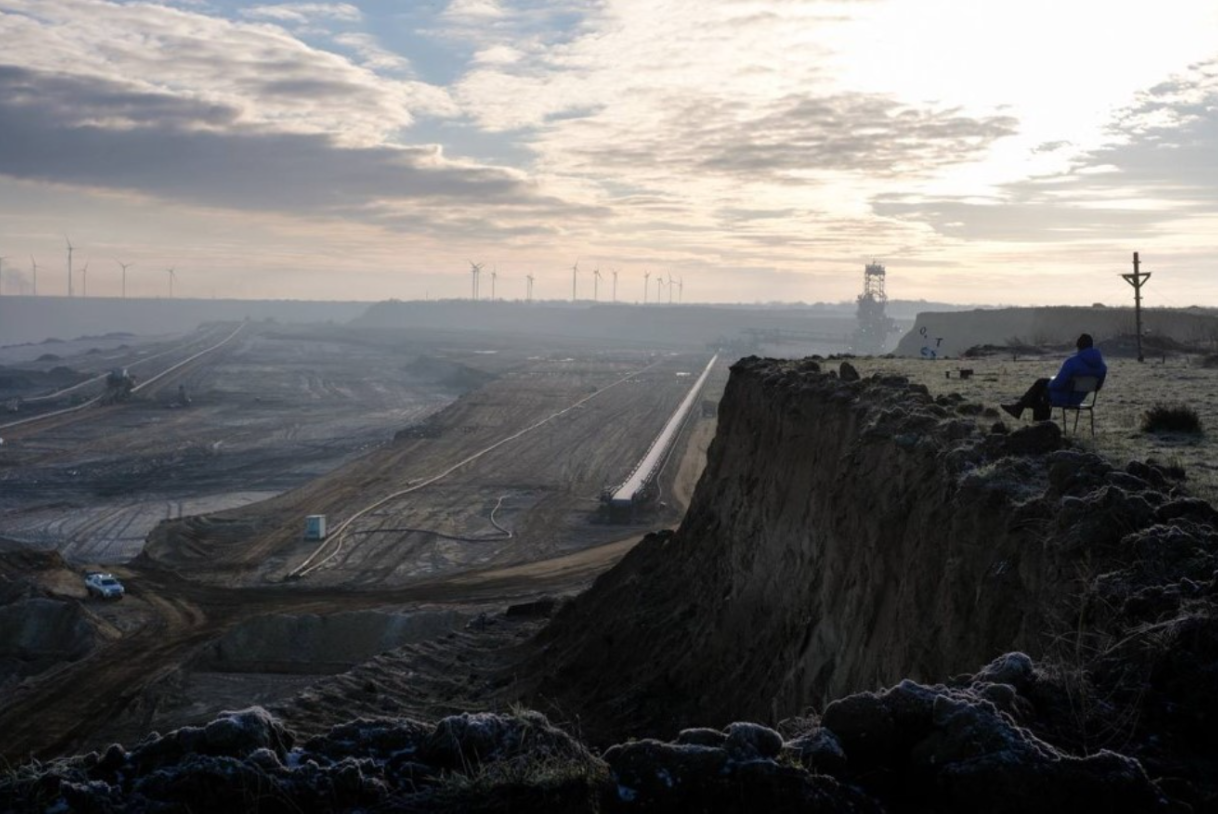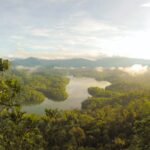In January this year, the German hamlet Lützerath was destroyed for good to allow for the expansion of one of the country’s many coal mines. However, the village didn’t go down without a fight. In 2020, activists and anarchists started to occupy Lützerath to defend it against destruction. I’ve talked to Elena, who spent the five months leading up to Lützerath’s demolition living in the village as a part of her research. We talked about media narratives, resistance as a place of collective learning, and what Lützerath actually stood for.
The History of Lützerath
In 2020, Germany made a plan to phase out coal completely by 2038. But as a country heavily reliant on Russian gas, the war in Ukraine and consequent gas shortages shifted priorities and the government declared that mining needed to temporarily expand again. In November 2022 politicians of Germany’s Green Party struck a deal with the country’s largest energy producing company and mine operator, RWE. The company was allowed to intensify the burning of coal in the state of North Rhine-Westphalia but is now required to phase out coal in the area by 2030 instead of 2038. However, because of the intensified production, a similar amount of carbon will be emitted in just a shorter time.
As a part of the agreement, the village Lützerath was declared for destruction while five other villages that had also been at risk could remain. The government presented this as a good trade off. The mine that has now swallowed Lützerath is called Garzweiler and it’s an open cast lignite coal mine. Lignite coal, or brown coal, is known to be the most polluting source of energy and it’s responsible for about 20% of Germany’s greenhouse gas emissions.
The struggle over Lützerath went on for a long time. RWE started buying land in the village in 2006, resettling its residents to other places. Among other residents, the farmer Eckardt Heukamp stood against RWE’s efforts of resettlements for a long time by appealing in several courts against the company. In 2020 activists started to reside in the village’s empty houses and in self built treehouses and cabins, joining Heukamp in defense of Lützerath. In March 2022 RWE won a victory over Heukamp in court, giving them the necessary legal basis for destroying the village.
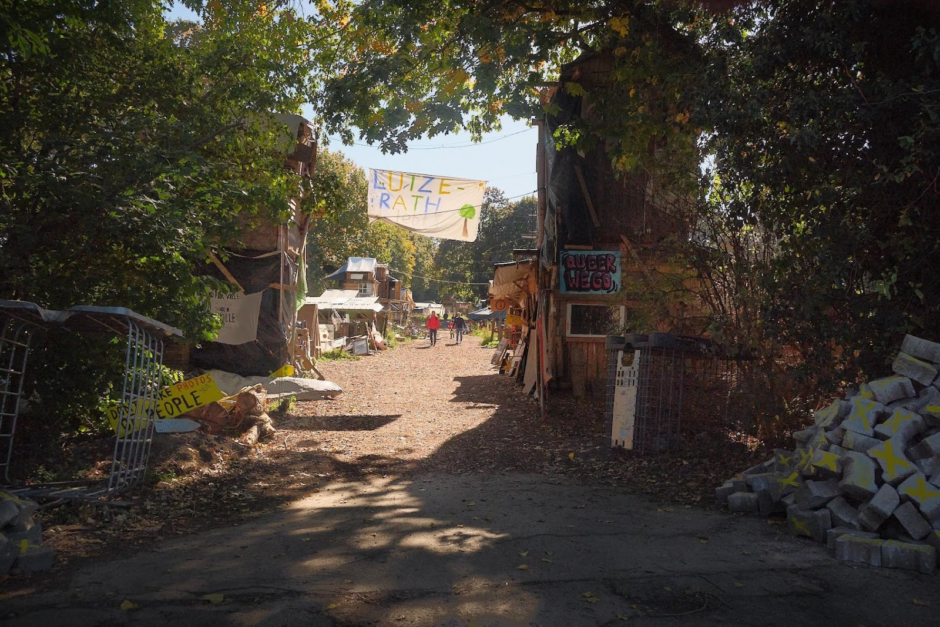
Producing narratives
Elena is currently doing her masters in Development, Environment, and Cultural Change at the University of Oslo. She went to Lützerath to conduct research for her master’s thesis, exploring how media manipulation is used as a technique of social war and analyzing what dominant narratives are produced about political struggles like the one in Lützerath. From her research, she’s found that mainstream media frequently centers around the topic of violence when describing these struggles, for example by describing activists as extreme, chaotic, or criminals. To Elena, these stories are produced as a way to distract from what people are actually trying to do and undermine potential support for the cause.
“It also goes towards more subliminal stories, for example referring to the negotiations between RWE and the politicians as a ‘deal’ instead of land grabbing, which is also very much concealing how forceful this whole operation is.”
Another repeated story has been to emphasize the fact that most protestors were not originally from the area themselves, but came from across Germany and Europe.
“Again, this delegitimizes the protest. It doesn’t recognize that it’s not only about keeping our soils and our landscapes intact, but to prevent more emissions to be released and to prevent accelerating climate change.”
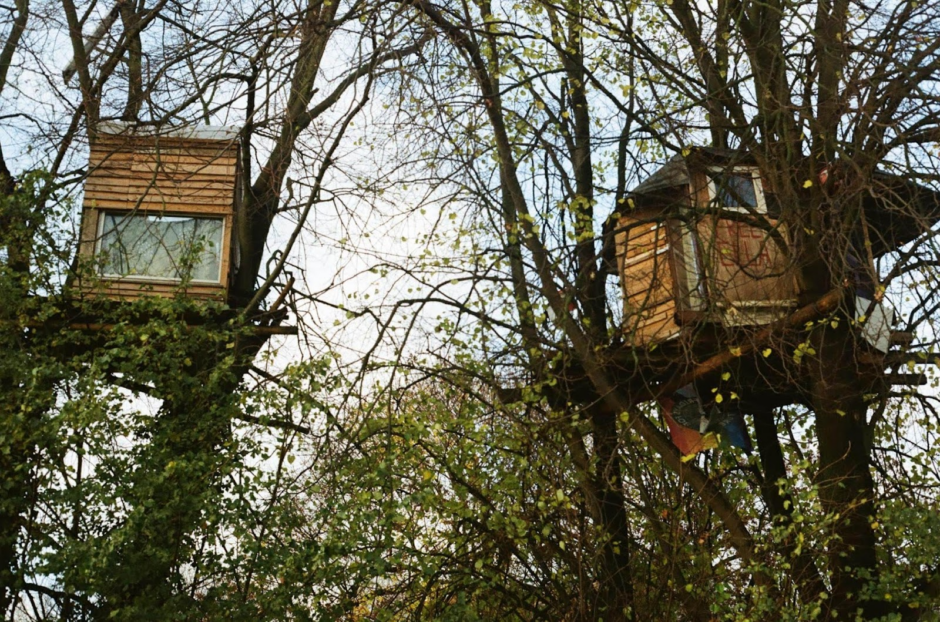
A different type of home
When talking about Lützerath Elena describes a warm, welcoming place with a large sense of community. Everyday life was varied but could consist of plenaries, building and cooking together, making music, organizing demonstrations, talking and listening, building barricades, dancing, and having communal meals. If very specific tasks had to be done, people would create smaller groups and work out a plan to make that happen.
“I think overall I would just really emphasize to describe Lützi as a place of collective learning. Besides being a place of resistance it’s also a place where people try to build a better world and to live it, and I think that was really evident in everyday interactions and encounters with people . . . Usually there was just a very common and open discussion around things to discover and learn together how to be more respectful and kind with each other.”
Elena believes this openness contributed to the large diversity of people that were there. From first-time activists to experienced climate activists, students, people from local villages, young and old, every individual was welcome in Lützerath.
“No one expected from each other to have this one answer or to know everything, but everyone knew a little bit and knew some aspects of this crisis we are in. Together we were just learning how to try and build a better society.”
She also points out that even though the whole situation could be sad and difficult at times, it was still a place full of laughter.
“There was so much humor involved in everyday life. I guess this sense of humor was a way of coping with the frustration and pain that derives from trying to blockade a gigantic energy corporation that destroys the land in front of you.”
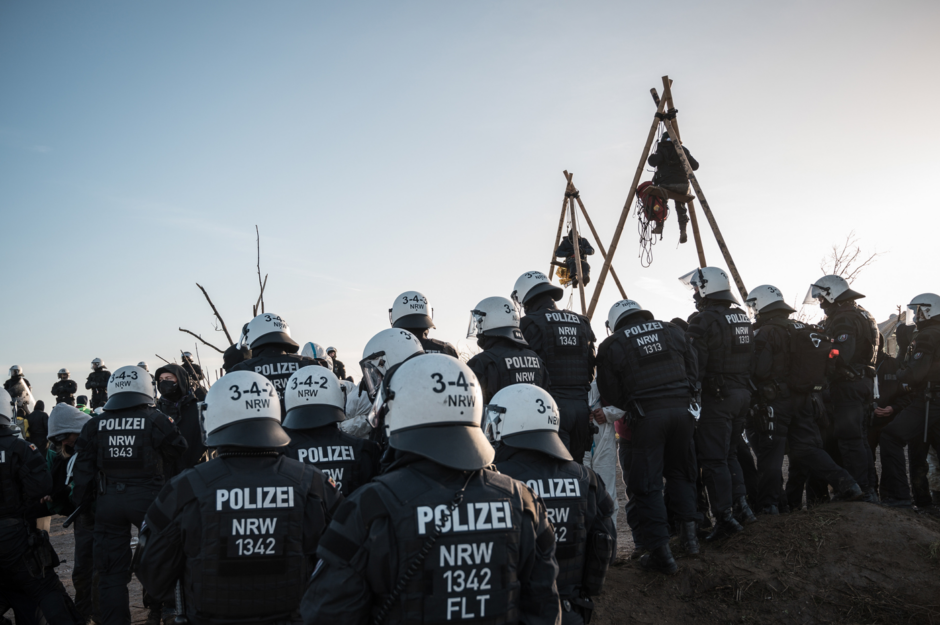
Making violence visible
The 11th of January this year was the official day of the eviction of Lützerath when the police entered with full force to clear all activists from the area. The days leading up to the eviction had also been subject to increasingly intense police presence, already putting people through a lot of stress. To prevent any others from entering Lützerath, the police, and RWE security forces built a fence around the village before starting to systematically empty and destroy the structures built by activists over the past years. Elena reflects on the police strategies during these days.
“They used a lot of tactics that are military strategies actually, like for example taking down the kitchen, the food supply, first. They said they wouldn’t do that, but then they still started with taking down the communal kitchen. Which is a war strategy, to cut off food supply.”
She also describes the issue of transparency. During the days of the eviction, there were a lot of restrictions put on journalists to enter the village, making it difficult to document what was actually going on. On January 14th, when 35.000 people joined the protest, the police guarded Lützerath with water throwers, horses, dogs, pepper spray, and tear gas. First aid volunteers from the site have given reports of seeing every bone in the human body broken, Elena says.
“It’s very hard to see how people who are not armed or protected in any way, who just don’t obey the police when they say ‘move’, how they get hurt.”
Elena believes that Lützerath worked to make the violence that is always connected to resource extraction more visible. By re-occupying a space that has been forcefully emptied of its inhabitants, the impact resource extraction and its expansion have on people becomes more clear. She also points out that the eviction showed how linked the government is to companies like RWE.
“The struggle against mining is decades old. There’s always been really close personal and financial ties between politics and this specific corporation, RWE, in the past. That is kind of invisible sometimes, or maybe hard to grasp or see, but I think you could really see that during the eviction because they were just working together on taking away Lützerath.”
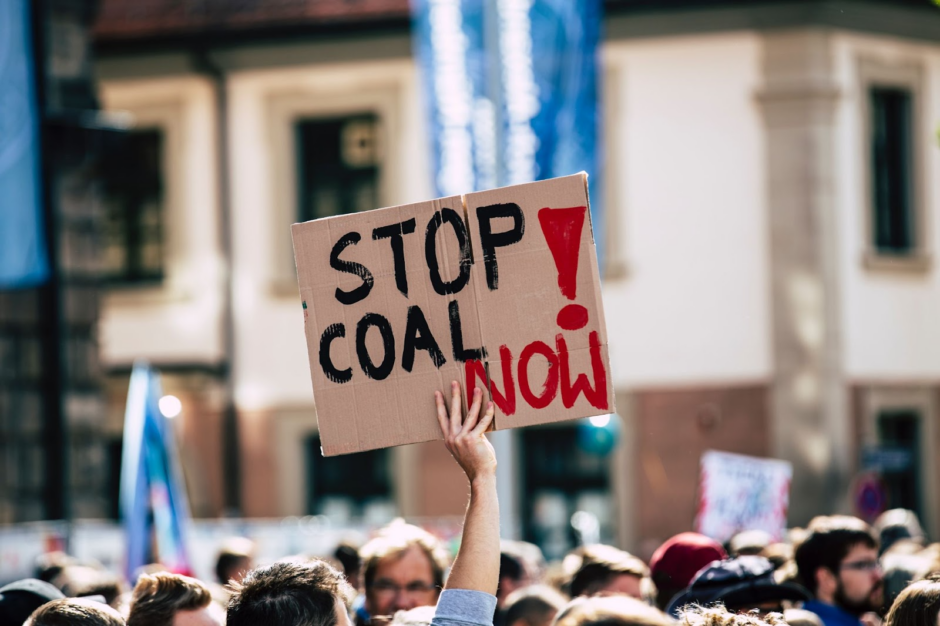
Lost but not for nothing
The German government allowed for the expansion of the Garzweiler mine, even though this will likely make it hard for Germany to stay within the carbon budget set in the Paris Agreement. For many people in the German environmental movement, the blow hit extra hard as the Green Party was a part of these decisions. To Elena, this just proves that the necessary change won’t come from the politicians in parliament.
“It’s so inherent to states and to our Western economy that they have to keep growing and growing, and if politicians don’t acknowledge that that is not possible forever on a finite planet, then there’s not really any point in what they’re saying about sustainability.”
The village of Lützerath is now completely destroyed and that is of course a tremendously painful loss to many people. But that doesn’t mean that the years of occupation, activism, and resistance in Lützerath were in vain. Elena describes all that time of resistance in the village as an experience where the climate justice movement learned and grew together a lot. Like so many other fights against injustice and climate change, the fight isn’t only about one place. Through solidarity, it also connects to the bigger struggle and the structural issues that affect people all over the world.
“That is what Lützerath communicated, that we need a different way of living, a different economy. We need to restructure our lives so that we can detach from this growth imperative and just have good lives without having to have more and more all the time.”


